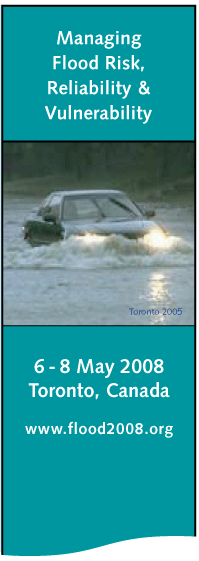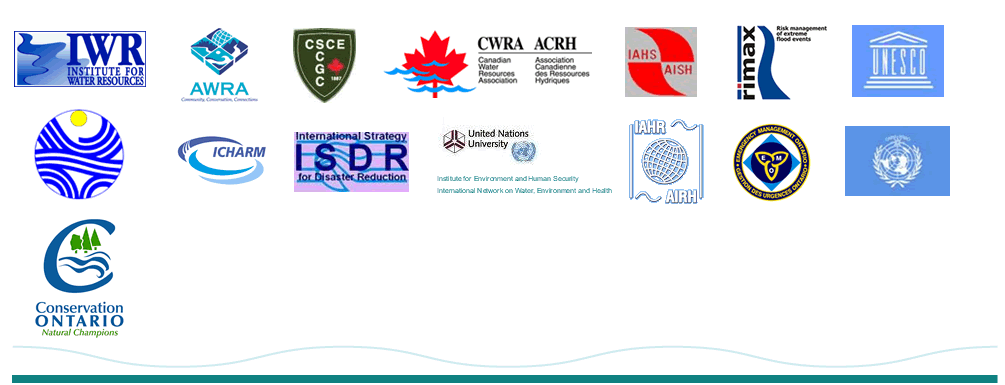

 |
|
 |
Floods, including flash and riverine floods, snowmelt floods, ice jams, and mud flows, are naturally occurring hazards that provide essential elements to the bio-diversity and sustainability of ecosystems and many human activities. Floods are also the most taxing type of water-related natural disasters to humans, material assets, as well as to cultural and ecological resources—affecting about 520 million people and their livelihoods and claiming about 25,000 lives annually worldwide. The annual cost to the world economy of floods and other water-related disasters exceeds $60 billion, whilst the cost of damage caused to cultural assets and natural resources is by no means quantifiable by economic scales. The Institute for Catastrophic Loss Reduction was the host for the International Symposium on Flood Defence (ISFD4), which took place on 6-8 May 2008 in Toronto, Canada at the Westin Harbour Castle. The theme for this important event, which marks the fourth in a series, focused on the management of flood risk, reliability and vulnerability. As the recent flood disasters, like hurricanes in the United States and tsunami in Asia, made abundantly clear, all nations are usceptible to the damaging effects that major storm and flood events cause. ISFD4 provided a unique opportunity to bring the interdisciplinary group of flood experts together to share critical knowledge from regional and international perspectives. In keeping with the previous ISFD held in Nijmegen, Netherlands the focus of the Toronto meeting was a new perspective of flood risk management and assessment - one that recognizes flood risk reduction as an integral part of water resource management and which aims to maximize the resultant economic and social welfare in an equitable manner without compromising the sustainability of vital systems. Appropriate flood risk-mitigation investment, and the redirection of resources into flood disaster prevention, offers significant economic benefits, as well as reduction in loss of life and property, improvements in welfare and social stability. |
 |
 |